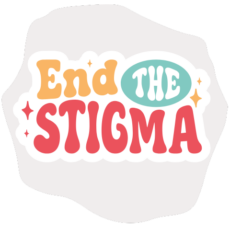

Reducing the Stigma of Mental Health Challenges
Mental health is a vital part of overall well-being, yet stigma and misconceptions often prevent families from seeking help. For families, fostering an environment of understanding and acceptance is key to supporting children and adults facing mental health challenges.
May is Mental Health Awareness Month. It’s a special time to raise awareness, promote understanding, and encourage open conversations about mental health.
Why Reducing Stigma Matters
Stigma can lead to feelings of shame, isolation, and reluctance to access support. When families feel comfortable discussing mental health openly, they are more likely to seek early intervention, leading to better outcomes. Reducing stigma also promotes acceptance and inclusion, helping individuals with mental health challenges feel valued in the community.
How Families Can Help
- Educate and Normalize: Learning about mental health conditions helps dispel myths and promotes understanding. Resources from the Utah Parent Center can assist families in gaining reliable information.
- Share Personal Stories: Personal experiences humanize mental health issues, fostering empathy and reducing shame.
- Open Conversations: Parents and community leaders can model openness by discussing mental health respectfully, encouraging others to do the same.
- Share Resources: Connecting families with local mental health services and support groups reduces fears and promotes resilience.
- Challenge Stereotypes: Use respectful language and stand against discrimination, creating a welcoming environment for all.
In Utah, individuals facing mental health challenges have access to a range of resources, including the 988 Suicide & Crisis Lifeline, NAMI Utah, and local behavioral health centers. The state also offers crisis support through the Utah Crisis Line and Stabilization & Mobile Response.
Each county in Utah has its own mental health and substance use disorder treatment services, accessible through the Utah Local Mental Health Authority (LMHA). Click here for your county.
The University of Utah provides access to a range of mental health services, including the Huntsman Mental Health Institute.
The Role of the Utah Parent Center
The Utah Parent Center supports families by providing resources, training, and community connections to families with children with disabilities. One of our goals is to create a community where disabilities and mental health challenges are understood as part of the human experience and met with compassion.
For additional resources, contact the Utah Parent Center at 801-272-1051 or visit https://utahparentcenter.org/mental-health/







